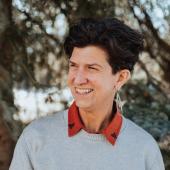Fantastic Four
Colorado Springs’ residents are noticing an interesting trend lately: like Starbucks in its heyday, dental practices are popping up on every corner. Despite the dental field’s struggle to provide personalized attention due to staffing shortages, one might assume that the abundance of dentists would allow for more one-on-one interaction. However, the economy is a challenge for every business, and dental practices face more than other industries. The increased number of available dentists is combined with decreased consumer demand—dental care is one of only three areas where household spending has not recovered after the 2007 recession—and shrinking insurance reimbursements. Despite these trends, many privately owned practices are providing high-quality and personalized care to patients. At the forefront of this movement are four remarkable local women.
Traditionally, men have dominated dentistry. Forty years ago, 7% of dental school graduates were women, and fifteen years ago it was only 24%. However, four women defied the statistics and opened specialized practices in oral healthcare in our community. Dr. Colleen Jenson, founder of Grace Dental, focuses on general dentistry and oral health: evaluating patients, providing education and maintenance, and directing them to specialists as needed. Dr. Kim Batterson at Kim Batterson Orthodontics emphasizes not only straightening teeth, but also aligning jaws and ensuring unobstructed airways. Dr. Emily Batson, founder of Batson Dentistry & Prosthodontics, specializes in restoring facial structure through dentures, implants, crowns, and bridges for patients with mismatched jaws or trauma-related issues. Dr. Rebecca Facy at Colorado Maxillofacial & Oral Surgeons (CoMax) performs various surgical procedures, including reconstructive surgeries for traumatic injuries or severe infections. Having completed a combined dental and medical school residency program, she specializes in Orthognathic Surgery and administers anesthesia in-office, a rarity in the dental industry.

All four share a passion for delivering the highest possible quality of care to their patients. They express a love for fostering relationships with their patients and witnessing the impact they can have on their lives. The ability to smile with confidence can provide a person with a new lease on life, and at times the work these women do is lifesaving. “There’s the transformations you get to see with patients,” says Dr. Batson. “We change lives every day. So that’s the bigger picture. And that’s what keeps me going back.”
The four met each other professionally over the years and have since developed a deep personal bond. They enjoy their work, often “talking shop” when they meet or communicate via text. They share insights about the latest techniques or discuss challenges with difficult cases. Being part of a supportive group that understands each other’s challenges and appreciates their triumphs is invaluable to them.
They also share personal passions. They each love the environment of Colorado Springs, often seizing the opportunity to engage in outdoor activities such as hiking, skiing, or trail running. Dr. Facy shared her love for cross-stitching with her friends, teaching those who were interested in learning. Her creations, adorning the walls of her waiting room, resemble prints of famous artwork from a distance and intricate works of Pointillism up close. When asked about her largest piece, she estimates it is made up of about a million stitches.

They support each other through the challenges of balancing family responsibilities with running their businesses. They juggle roles as entrepreneurs, mothers, community volunteers, and educators in their respective fields. With numerous obligations, maintaining continuous contact with each other is important to help handle the stress.
They also stand by each other during times of tragedy. Dr. Jenson launched her practice shortly before the pandemic forced her to temporarily close it. While managing her practice and fulfilling army reserve duties, she also coped with her husband’s devastating decline due to a degenerative disease. As his condition worsened, he was transferred to a care facility where she would go check on him daily after work. One night, she was in a meeting with the others and left temporarily to check on him. She was appalled at the condition she found him in. Overwhelmed and furious, she did her best to take care of him. When she didn’t return, the other three came to check on her, finding her at her wits’ end. They rallied around her, and she recalls being grateful for the emotional support she received: calling them her “pillars.” They were also there to lend their strength when she lost her husband a year ago.
They’ve also faced the challenges of working in a field where women rarely pursued careers as oral surgeons or owned their practices. Patients would often mistake them for hygienists or nurses. “When I went to residency, I was only the second woman to go through the program. And so, a lot of people had never met a woman oral surgeon,” Dr. Facey recalls. “I would go in to do a workup and go to inject a patient, and they’d be like ‘When do I get to see the doctor?’ It’s not that way anymore.” Her entire practice is currently staffed with women dentists.

They aim to inspire more young women to enter their fields as the number of women pursuing STEM (Science, Technology, Engineering, and Math) careers has been increasing. Oral healthcare provides exciting opportunities for science enthusiasts, involving anatomy, chemistry for creating implants, and physics for orthodontics. Dr. Batterson highlights that each patient presents a unique challenge. “If you want to move a tooth one way, you have to think about what that’s going to do to the adjacent teeth….It’s all physics. Everything has an equal and opposite reaction.”
They each believe starting a practice was the best decision, offering autonomy which is crucial for combating industry burnout. Freedom to make decisions regarding their practice’s direction reduces the challenges they encountered earlier in their careers. Additionally, not being subject to directives from a distant corporate entity enables them to invest in patient relationships rather than treating them as mere products on an assembly line.

They each employ unique approaches to assuage patient fears. Dr. Facy mentions that many of her patients perceive her as a relatable mom, making both parents and children comfortable around her. They all enjoy using humor to alleviate patient anxiety. Dr. Jenson often brings her dog, Polly, to her office. Polly makes rounds, visiting patients. Once, a patient expressed nervousness about a procedure while sitting in the hygiene chair, and suddenly Polly was there, resting her head on the patient’s leg, offering comfort.
They are concerned about the future of dentistry—one dominated by corporate-owned companies, transforming it into a commodity rather than serious health care. Many dental offices are now owned by corporations that prioritize profits over quality, rapidly establishing new offices with inexperienced dentists. This often jeopardizes patient safety. They hope new professionals prioritize long-term career planning, gaining experience with reputable practices focused on patient care to enhance their skills rather than profit-driven objectives.
Despite the bumps in the road, they wouldn’t choose any other path. The rewards of being in this profession far outweigh the costs. “I do feel really grateful to have an amazing staff and amazing colleagues,” Dr. Jenson remarks. “And I think sometimes when you’re in the thick of it, and stuff is breaking down or things aren’t working right, you want to call it a day. But it really is such a special and unique profession.”





